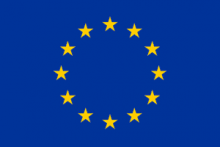22 June 2019
What added value do EU energy regulations have for prosumers?
For the first time, with the so-called ‘Clean Energy for All Europeans Package’, EU law regulates the do’s and don’ts for prosumers and energy communities.
By Marta Toporek, ClientEarth, PROSEU project partner
What does the Clean Energy Package consist of?
On 22 May 2019, the Council of Ministers of the European Union (EU) adopted the last four EU laws of the ‘Clean Energy for all Europeans’ package. What is also called the Clean Energy Package is a set of policy documents and eight legislative acts that update the EU policy and legal energy framework. It aims to facilitate the transition towards cleaner energy and compliance with the commitments of the Paris Agreement.
These four pieces of law that regulate the functioning of the EU energy market are recasts of the Electricity Directive and Electricity Regulation as well as the ACER Regulation and the Electricity Sector Risk-Preparedness Regulation. The whole package also consists of energy efficiency legislation (revisions of directives on Energy Efficiency and Energy Performance of Buildings), a recast of the Renewables Directive and a new Governance Regulation, which were all adopted last year.
Prosumerism mentioned for the first time in EU law
One of the issues regulated through these new EU rules, in particular by the Renewables and Electricity Directives, is individual and collective prosumerism, i.e. self-consumption and energy communities. By having these EU laws in place to regulate prosumers, EU Member States which did not have legislation on self-consumption and energy communities before, will now have to adopt them. In countries where legislation already existed, they will need to be adapted to meet the new EU requirements. In general, regardless whether previous legislation was in place or not, all EU Member States have until mid-2020 and mid-2021 to adopt the Electricity and the Renewables Directive respectively.
Those two Directives establish different kinds of players and entities. The new Renewables Directive regulates renewables self-consumers and renewable energy communities, while the Electricity Directive provides legislation on active customers and citizens energy communities.
The EU laws stipulate that both renewable self-consumers and active customers may also act jointly. Jointly acting prosumers are distinct from energy communities. The Renewables Directive describes jointly acting renewables self-consumers as “a group of at least two jointly acting renewables self-consumers, who are located in the same building or multi-apartment block”. There is no similar definition for jointly acting citizens energy communities. However, the Electricity Directive explicitly gives the possibility for active customers to act jointly and sets some related provisions. The EU laws therefore allow for prosumers to act jointly without needing to establish a legal form of energy community.
For all these actors, the EU law sets definitions, basic rights and obligations as well as general enabling framework rules that Member States will have to implement.
It is now up to Member States to implement these rules in a way that best fits their national systems. This work should start within the framework of National Energy and Climate Plans (NECPs) and will continue until the provisions of the EU Directives are transposed into national laws.
Next steps
Approval of the EU rules by the European Parliament and the Council is only the first step towards setting an effective national framework for prosumers. For the implementation of the rules to be successful, it will first be important to understand the differences between various entities and structures set by EU laws. A good understanding of all new concepts and related rules will be key to ensure that provisions on prosumers and energy communities are implemented successfully in harmonised way throughout the EU.
For the new EU rules to be successful, each individual country must use them as a starting point to establish a progressive and forward-looking national legislative framework. To do so, each country must first identify the existing barriers and the potential of development of prosumerism and energy communities in its territory. Then it has to use this knowledge to build strong national framework based on EU rules.
Image copyright: European flags flying in front of the Berlaymont by "TPCOM"













